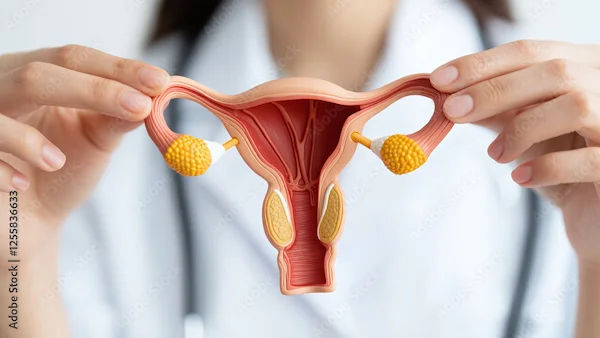Bladder Repair During Hysterectomy
Learn why bladder repair may be needed during a hysterectomy, how it’s performed, and what recovery involves.

Written by Dr.Sonia Bhatt
Last updated on 7th Jul, 2025

Introduction
Undergoing a hysterectomy (surgical removal of the uterus) can be a significant decision for many women. Sometimes, during this procedure, the bladder may also need repair due to pre-existing conditions or accidental injury. If you or a loved one is scheduled for a hysterectomy and are concerned about bladder repair, this article will help you understand what to expect, how to prepare, and how to recover smoothly.
What Is Bladder Repair During Hysterectomy?
A hysterectomy may sometimes involve repairing the bladder if there is:
- Pelvic organ prolapse when the bladder drops into the vaginal space due to weakened muscles.
- Accidental injury to the bladder during surgery which is rare but possible.
- Pre-existing bladder issues like stress urinary incontinence which is leakage when coughing, sneezing, or lifting.
The surgeon may perform a cystoscopy (a small camera inserted into the bladder) to check for any damage and repair it if needed.
Why Might Bladder Repair Be Necessary?
Several situations may require bladder repair during hysterectomy, often depending on your anatomy, medical history, and surgical findings.
1. Pelvic Organ Prolapse – Weak pelvic muscles can cause the bladder to sag, leading to discomfort and urinary problems.
2. Stress Urinary Incontinence (SUI) – Some women experience urine leakage due to weakened bladder support.
3. Surgical Injury – Though rare, the bladder can get nicked during hysterectomy, requiring immediate repair.
Symptoms That May Indicate a Bladder Issue After Hysterectomy
If you experience any of these after surgery, consult your doctor:
- Frequent urination or inability to empty the bladder fully.
- Pain or burning while urinating.
- Blood in urine (hematuria).
- Urine leakage (incontinence).
- Recurrent urinary tract infections (UTIs).
Consult Top Specialists for Personalised Health Advice
How Is Bladder Repair Done?
The method of bladder repair often depends on the specific issue encountered. Your surgeon will determine the most suitable technique based on the condition of your bladder and surrounding tissues.
1. Sling Procedure – A mesh or tissue is placed under the urethra to support it and prevent leakage.
2. Bladder Suspension – The bladder is lifted and secured to nearby ligaments or bones.
3. Direct Repair – If there’s an injury, the surgeon stitches the bladder wall.
Recovery After Bladder Repair
Recovery varies depending on the type of repair, but here’s a general guideline:
First Few Days After Surgery
Early recovery focuses on rest and careful monitoring.
- Catheter Use: You may need a catheter for a few days to help the bladder heal.
- Pain Management: Mild discomfort is normal; take prescribed painkillers.
- Hydration: Drink plenty of water to flush out the system.
First Few Weeks
Gradual improvements may occur during this period.
- Avoid Heavy Lifting: Straining can disrupt healing.
- Pelvic Floor Exercises (Kegels): Strengthening these muscles helps recovery.
- Follow-Up Visits: Ensure the bladder is healing well.
Long-Term Care
- Maintaining bladder health after recovery may involve lifestyle changes.
- Healthy Diet: Fibre-rich foods prevent constipation, which can strain the bladder.
- Avoid Smoking: Smoking slows healing and increases UTI risk.
- Stay Active: Gentle walks improve circulation and healing.
When to Seek Medical Help?
Contact your doctor if you notice:
- Severe pain or swelling.
- High fever or chills.
- Inability to urinate or extreme difficulty.
Can Bladder Problems Be Prevented?
While not all bladder issues can be avoided, you can reduce risks by:
- Choosing an experienced surgeon.
- Discussing pelvic floor therapy before surgery.
- Maintaining a healthy weight as excess weight strains pelvic muscles.
Final Thoughts
Bladder repair during hysterectomy is a common and manageable procedure. With proper care and follow-up, most women recover well and experience improved bladder function. If you have concerns, don’t hesitate to discuss them with your doctor.
If you’re preparing for a hysterectomy or experiencing bladder issues, consult a specialist at Apollo 24|7. You can book an appointment online for personalised care and guidance.
Consult Top Gynaecologists
Consult Top Specialists for Personalised Health Advice

Dr. Ramya G S
Obstetrician and Gynaecologist
11 Years • MBBS, DGO - Obstetrics & Gynaecology, DNB - Obstetrics & Gynaecology
Bengaluru
Apollo Clinic, JP nagar, Bengaluru

Dr. Mona Yadav
Obstetrician and Gynaecologist
19 Years • MBBS, MD (Obstetrics & Gynaecology)
Dombivli
Nulife multispeciality, Dombivli

Dr. Sridevi Matta
Obstetrician and Gynaecologist
28 Years • MS ( OBG ), DGO, DNB Obstetrics & Gynaecology
Chinagadila
Apollo Hospitals Health City Unit, Chinagadila
(175+ Patients)

Dr. Soumya P
Obstetrician and Gynaecologist
6 Years • MBBS,MS (OBST & GYNAE)
Bengaluru
Apollo Clinic, JP nagar, Bengaluru

Dr. Harshitha B R
Obstetrician and Gynaecologist
11 Years • MBBS, DGO( OBS & GYN)
Bengaluru
Apollo Clinic, JP nagar, Bengaluru
Consult Top Gynaecologists

Dr. Ramya G S
Obstetrician and Gynaecologist
11 Years • MBBS, DGO - Obstetrics & Gynaecology, DNB - Obstetrics & Gynaecology
Bengaluru
Apollo Clinic, JP nagar, Bengaluru

Dr. Mona Yadav
Obstetrician and Gynaecologist
19 Years • MBBS, MD (Obstetrics & Gynaecology)
Dombivli
Nulife multispeciality, Dombivli

Dr. Sridevi Matta
Obstetrician and Gynaecologist
28 Years • MS ( OBG ), DGO, DNB Obstetrics & Gynaecology
Chinagadila
Apollo Hospitals Health City Unit, Chinagadila
(175+ Patients)

Dr. Soumya P
Obstetrician and Gynaecologist
6 Years • MBBS,MS (OBST & GYNAE)
Bengaluru
Apollo Clinic, JP nagar, Bengaluru

Dr. Harshitha B R
Obstetrician and Gynaecologist
11 Years • MBBS, DGO( OBS & GYN)
Bengaluru
Apollo Clinic, JP nagar, Bengaluru




